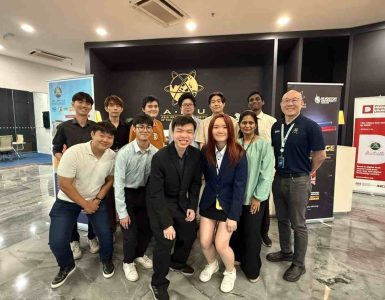
The police clamp down on the annual Seksualiti Merdeka event at the Annexe in Central Market, Kuala Lumpur, has been described by a disabled activist, Anthony Thanasayan, as an act of “criminalising an individual’s personal identity”.
Thanasayan criticised the announcement on Thursday afternoon by Deputy Inspector-General of Police Khalid Abu Bakar, who declared a blanket ban on the event because it might threaten public order.
Ironically, in doing so, Khalid invoked the Police Act and a little-known provision in the Penal Code on religion, thus pouring cold water on the reformist zeal of Prime Minister Najib Razak who last month announced that the ISA would be repealed.
“This is a giant step backwards [for a progressive society] , because the decision does not only affects able-bodied people, it also affects the disabled,” Thanasayan tells Komunitikini.
He explains that the disabled, like other able-bodied human beings, have their own sexual urges and desires: “Many of them, who after decades have been marginalised by society, are unclear about their sexuality and are afraid to discuss it with others.”
Underscoring the significance of bringing issues of sexuality to the clear light of day, he adds: “Some of them end up being heterosexual or homosexual just because there is a lack of opportunity for them to get adequate information.”
Thanasayan is also the chairman of the Malaysian Association for Animal-Assisted Therapy for the Disabled and Elderly.
He commended the organisers of Seksualiti Merdeka, which was first organized in 2008, for providing a platform to address such crucial issues openly.
Thanasayan, a councillor with the Petaling Jaya City Council (MBPJ), also expressed dismay at some of the comments on the event made by self-styled religious and so-called NGO leaders, some of whom have said they would oppose it, no matter what.
“[What they said] really sickened me. [Seksualiti Merdeka] is not about sex; it’s about who you are.
“They are criminalising the way you were born, just like how they [treat] the disabled,” he notes.
The banning of the event, Thanasayan says, would have the effect of further alienating marginalised communities.
“Now they can only go back into their shells and get information from internet, which sometimes might be misleading,” he says.
Seksualiti Merdeka was scheduled to be officially launched on November 9 by Ambiga Sreenevasan, and had programmed a series workshops, talks, film screenings and letter writing.












